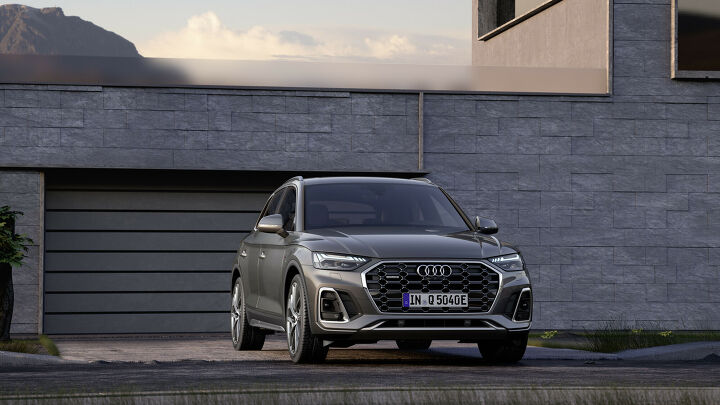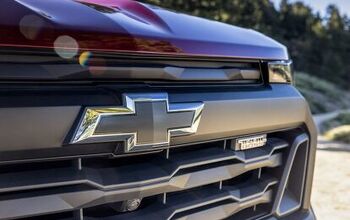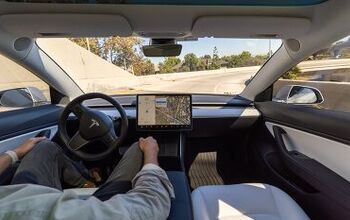Imported Audi, Porsche, and Bentley Models Held Back Over Forced Labor Allegations

Thousands of vehicles manufactured under the umbrella of Volkswagen Group are being held at U.S. ports for allegedly violating the Uyghur Forced Labor Prevention Act (UFLPA). Enacted in 2021, the law is supposed to prohibit the utilization of slave labor in Western China. While the impacted automakers include Porsche, Bentley and Audi, we’ve seen plenty of brands being accused of leveraging forced labor in the Xinjiang region of China, where the country is said to have forcibly concentrated the Uyghur ethnic minority.
The actions the Chinese government has been accused of committing within the region are as horrendous as they are vast. But we’re only interested in the forced labor claims, which date back to roughly 2017 when the first modern reduction and detainment centers were established. Numerous automakers have either been accused of using suppliers that participated in forced labor since then. Concerns have revolved around aluminum, steel, and copper sourcing, tire manufacturing, battery production, and a slew of parts suppliers said to be employing people against their will.
China has defended what’s happening in Xinjiang as an educational program designed to uplift and modernize the Uyghur population in a manner that spurs economic growth. However, numerous human rights organizations and the UN’s top human rights body have suggested the nation may be committing “crimes against humanity.”
Reports have faulted Chinese brands like BYD and Western companies like Audi, Volkswagen, BMW, Mercedes-Benz, Toyota, General Motors, and Ford Motor Co. as having participated (often via Chinese subsidiaries and suppliers) in forced labor practices. Volkswagen Group has often received the most attention, however, likely due to its strong presence in China and an unsavory past where it utilized slave labor during the Second World War.
According to a report from the Financial Times, thousands of Porsche, Bentley and Audi vehicles have been impounded so U.S. authorities could conduct a proper investigation. The big concern of late has been the industrial procurement of aluminum created via forced labor. Before that, VW was being accused of having smaller suppliers manufacturing small electronic components that were similarly believed to be in violation of U.S. custom laws. That item has come up again, resulting in thousands of Audi products, hundreds of Porsches, and some Bentley vehicles all being held back.
From FT:
In a statement, VW said it “takes allegations of infringements of human rights very seriously, both within the company and in the supply chain” including “any allegations of forced labour”.
It added: “As soon as we received information of allegations regarding one of our sub-suppliers, we have been investigating the matter. We will clarify the facts and then take appropriate steps. These may also include the termination of a supplier relationship if our investigations confirm serious violations.”
Questions around forced labour found within its Chinese supply chain are particularly sensitive for VW, which has been facing mounting pressure from human rights groups and investors alike over a facility it jointly owns in Xinjiang’s capital, Urumqi.
The German car company on Wednesday said it would discuss “the future direction of business” in the Xinjiang region with its Chinese joint venture partner SAIC, following the publication of fresh allegations of forced labour in German media.
While your author is often pretty down on China and despises slavery in all formats, it seems plausible that the above is more about discouraging automakers from using Chinese labor than actually trying to solve what’s happening in Xinjiang. The situation certainly looks bad and there are loads of historic examples where the Chinese government has egregiously persecuted dissenting ethnic, religious, and political groups. But it’s hard to gauge how much more U.S. authorities care about that vs tweaking regional trade imbalances.
We’ve also seen more than just Volkswagen Group being accused of having benefited from forced labor over the last few years. But some domestic brands with similarly deep ties to China (e.g. General Motors) don’t seem to fall under the same levels of scrutiny. That said, Ford has fallen under harsh criticism for the alleged Chinese involvement at its new battery plant in Michigan.
Volkswagen has said it plans to contact customers to let them know about the status of the vehicles they ordered in case the investigation causes a delay. It’s assumed that the individual brands will find alternative modules, assuming they’re from facilities utilizing forced labor. But this is likely another black eye for Volkswagen Group and the company will probably need to go out of its way to avoid bad press on the topic moving forward.
[Image: Volkswagen Group]
Become a TTAC insider. Get the latest news, features, TTAC takes, and everything else that gets to the truth about cars first by subscribing to our newsletter.

A staunch consumer advocate tracking industry trends and regulation. Before joining TTAC, Matt spent a decade working for marketing and research firms based in NYC. Clients included several of the world’s largest automakers, global tire brands, and aftermarket part suppliers. Dissatisfied with the corporate world and resentful of having to wear suits everyday, he pivoted to writing about cars. Since then, that man has become an ardent supporter of the right-to-repair movement, been interviewed on the auto industry by national radio broadcasts, driven more rental cars than anyone ever should, participated in amateur rallying events, and received the requisite minimum training as sanctioned by the SCCA. Handy with a wrench, Matt grew up surrounded by Detroit auto workers and managed to get a pizza delivery job before he was legally eligible. He later found himself driving box trucks through Manhattan, guaranteeing future sympathy for actual truckers. He continues to conduct research pertaining to the automotive sector as an independent contractor and has since moved back to his native Michigan, closer to where the cars are born. A contrarian, Matt claims to prefer understeer — stating that front and all-wheel drive vehicles cater best to his driving style.
More by Matt Posky
Latest Car Reviews
Read moreLatest Product Reviews
Read moreRecent Comments
- Tassos OK Corey. I went and saw the photos again. Besides the fins, one thing I did not like on one of the models (I bet it was the 59) was the windshield, which looked bent (although I would bet its designer thought it was so cool at the time). Besides the too loud fins. The 58 was better.
- Spectator Lawfare in action, let’s see where this goes.
- Zerocred I highly recommend a Mini Cooper. They are fun to drive, very reliable, get great gas mileage, and everyone likes the way they look.Just as an aside I have one that I’d be willing to part with just as soon as I get the engine back in after its annual rebuild.
- NJRide Any new Infinitis in these plans? I feel like they might as well replace the QX50 with a Murano upgrade
- CaddyDaddy Start with a good vehicle (avoid anything FCA / European and most GM, they are all Junk). Buy from a private party which allows you to know the former owner. Have the vehicle checked out by a reputable mechanic. Go into the situation with the upper hand of the trade in value of the car. Have the ability to pay on the spot or at you bank immediately with cash or ability to draw on a loan. Millions of cars are out there, the one you are looking at is not a limited commodity. Dealers are a government protected monopoly that only add an unnecessary cost to those too intellectually lazy to do research for a good used car.


































Comments
Join the conversation
"However, numerous human rights organizations and the UN’s top human rights body have suggested the nation may be committing “crimes against humanity.”
May be committing? that's like saying the Pope may be Catholic. The UN Human rights council is an effing joke. Look at some of their members. Its equivalent to having MS-13, the Bloods, the Crips and the Latin Kings be part of a Police Gang Taskforce. WTF
VW also operates a joint venture plant in the western Xinjiang region with SAIC and is trying to end its association with the JV, because SAIC may have used forced labor to build a test track near the plant.